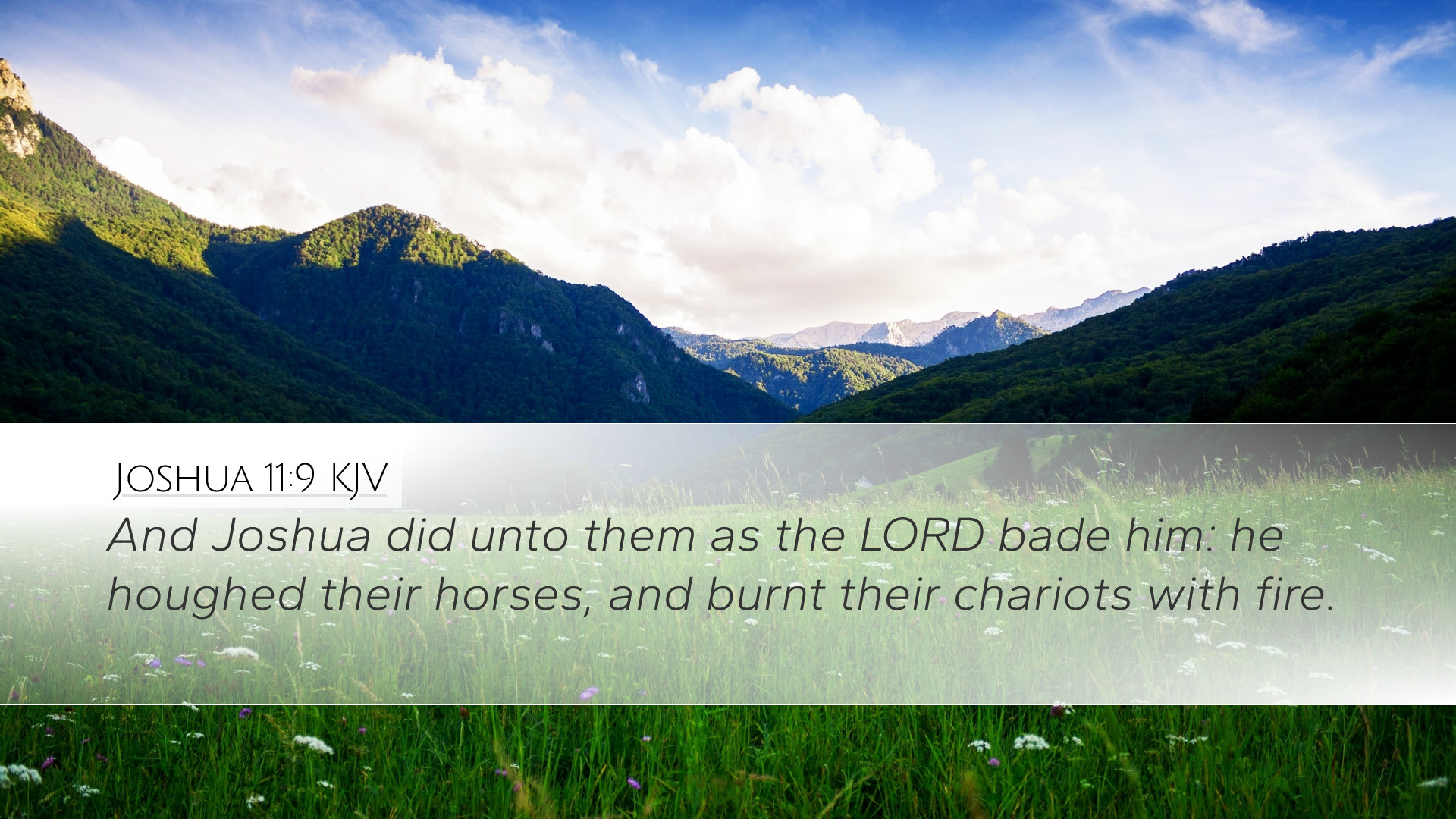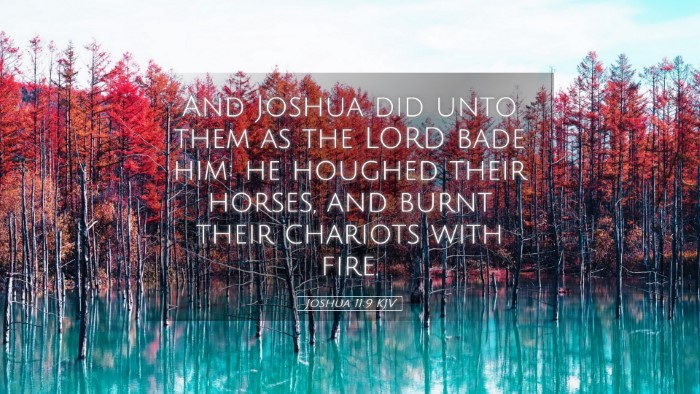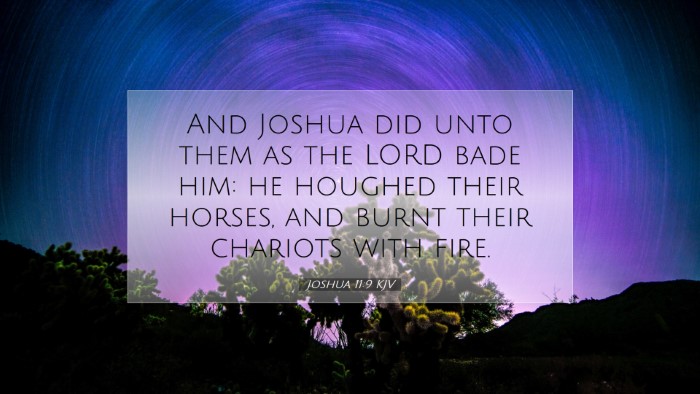Old Testament
Genesis Exodus Leviticus Numbers Deuteronomy Joshua Judges Ruth 1 Samuel 2 Samuel 1 Kings 2 Kings 1 Chronicles 2 Chronicles Ezra Nehemiah Esther Job Psalms Proverbs Ecclesiastes Song of Solomon Isaiah Jeremiah Lamentations Ezekiel Daniel Hosea Joel Amos Obadiah Jonah Micah Nahum Habakkuk Zephaniah Haggai Zechariah MalachiJoshua 11:9
Joshua 11:9 KJV
And Joshua did unto them as the LORD bade him: he houghed their horses, and burnt their chariots with fire.
Joshua 11:9 Bible Commentary
Commentary on Joshua 11:9
Joshua 11:9 (ESV): "And Joshua did to them as the LORD said to him: he hamstrung their horses and burned their chariots with fire."
Introduction
The verse of Joshua 11:9 encapsulates a significant moment in Israel's conquest of Canaan, highlighting the obedience of Joshua to divine command alongside profound implications for the theological understanding of warfare as presented in the Old Testament. The actions of hamstringing horses and burning chariots denote not only a strategic military decision but a deeper symbolic gesture reflecting reliance on God over military might.
Exegetical Insights
This verse occurs in the context of a larger narrative where Joshua is leading the Israelites against a coalition of kings united to combat the advancing Israelite forces. The emphasis is placed on obedience to God's word. Matthew Henry observes that this obedience is crucial, as it signifies Israel's submission to God's authority in the execution of judgment against their enemies.
Albert Barnes elaborates that the act of hamstringing horses serves a dual purpose: it removes a significant resource from the enemy's arsenal and symbolizes the ultimate recognition of God's sovereignty—trusting in His strength rather than their own war machines. This is reflective of a principled stance against reliance on human resources for spiritual victories.
Theological Implications
This verse invites deeper theological reflection concerning God’s directives in warfare. Adam Clarke posits that the command to destroy enemy resources signifies a broader message about the totality of God's command in the quest for holiness. It is a lesson against half-measures in obedience—indicating that altering God's commands to cater to human wisdom can lead to dire consequences.
- Divine Sovereignty: The action taken by Joshua is a testament to the sovereignty of God, reaffirming His control over battles and the outcomes of conflicts.
- Human Dependence: This verse articulates a core belief in the necessity for reliance upon God, rather than on one's own strength or military capabilities.
- Ethical Dimensions: The harshness of the command raises ethical questions which can be explored in contemporary contexts regarding the morality of war and divine justice.
Moral and Practical Applications
The historical and cultural context of Joshua 11:9 provides a platform for moral reflection for modern readers. The narrative encourages believers to consider the nature of their allegiances—where are we placing our trust? Are we relying on our own abilities, resources, or worldly systems rather than fully embracing God’s provision and guidance?
From a pastoral perspective, this text can be a poignant reminder for congregations to trust God’s plans in the face of adversity, emphasizing the importance of spiritual preparedness over merely physical readiness. The act of 'hamstringing' can symbolize cutting off those aspects of life which distract from or undermine our full devotion to God.
Conclusion
Joshua 11:9 serves as both a historical account and a rich source of theological reflection. It challenges us to confront our understanding of God’s guidance in difficult situations, nudging us towards a deeper grasp of divine obedience and the prioritization of spiritual realities over physical might. As we study this passage, may we glean insights that enhance our understanding of living in accordance with the divine will amidst a world often bent on self-reliance.


